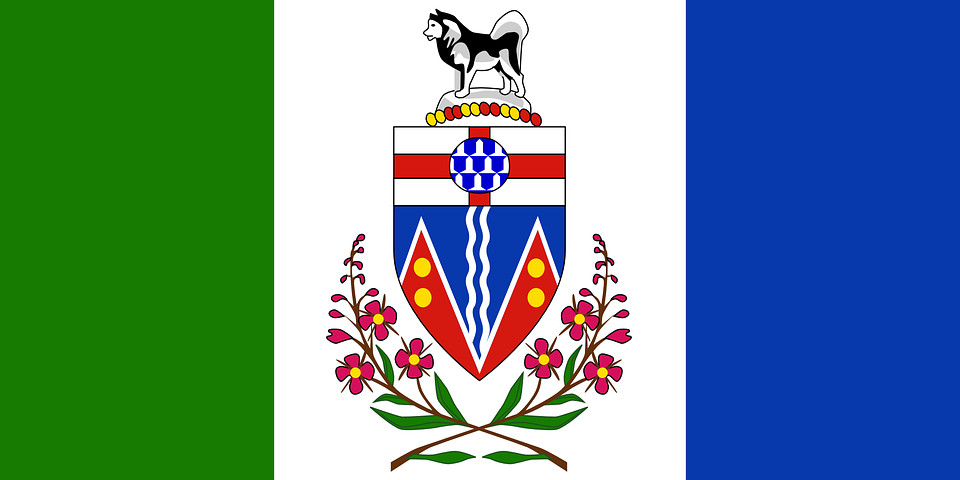You are here
Home 🌿 Marijuana Politics 🌿 Privatize the retail pot industry, opposition tells Yukon gov't 🌿Privatize the retail pot industry, opposition tells Yukon gov't

Retailers face 'perfect storm' of red tape and inefficient government pricing, Yukon Party says
Yukon's Official Opposition says it's time for the territorial government to butt out of the retail cannabis industry.
Yukon Party Leader Currie Dixon says the territory's pot retailers are being "bogged down" by red tape, inefficient pricing schemes and taxes.
"Around the country, the cannabis industry is growing and thriving, creating jobs and economic activity," Dixon said in the legislature on Monday.
"However, here in the Yukon we are hearing directly from businesses in the sector that are being stifled by a perfect storm of burdensome regulation, red tape and inefficient government pricing structures."
Last month, The Pot Hole, a cannabis retailer in Carmacks, Yukon, closed its doors. Owner Kendall Tricker told CBC News that it was just too difficult to make a buck, in part because of the territory's wholesale pricing structure.
"The black market is still thriving, in my opinion. And the government truly has done little to take away from that market, despite the fact that that's one of the arguments made for legalization," Tricker said.
"We find it a challenge to meet those prices and sell to the public at a profit."
Operating in a small rural community has also proven a challenge, she said, when there's still a stigma around cannabis use and some people prefer to buy online. So far, the Yukon government has monopolized online sales in the territory, but that's set to change next month.
Tricker says the pandemic also had an impact. She had been counting on tourists for some business.
The Pot Hole was one of three licensed retailers in Yukon's rural communities. The rest are in Whitehorse.
Jordi Mikeli-Jones, one of the owners of Triple J's Canna Space in Whitehorse, agrees that nobody's going to get rich selling legal weed in Yukon. Her business was awarded the first cannabis retail licence in the territory three years ago and she says it's been a struggle at times.
Jeremy Jones and Jordi Mikeli-Jones of Triple J's Canna Space in Whitehorse accept their cannabis retail licence in 2019. It was the first such license awarded in the territory. Seven more have been granted since then, most in Whitehorse. (Philippe Morin/CBC)
Some of that has to do with the cost of having the government act as the territory's wholesaler, she argues. For example, her business pays fees for warehousing even on special orders that are picked up immediately on delivery.
"Cannabis retailers in the Yukon really do absorb a lot of expenses incurred by the government," Mikeli-Jones says.
"I think where the work can be done is finding ways that we can deal directly with our licensed producers ... having greater control and ability over what we're bringing in and eliminating those costs of services. That's what I think will be most meaningful."
Mikeli-Jones says other costs also quickly add up, such as their city business licence, and licence renewal fees.
"No other industry in the Yukon is dealing with those levels of costs."
'Get out of the way'
Dixon told the legislature on Monday that the complaints from retailers prove that Yukon's system is not working.
"The Liberals have chosen a model that puts the government right in the middle of the private sector. No one should be surprised that this hasn't worked well for the private sector," Dixon said.
"The solution is simple. The government needs to get out of the way and fully privatize cannabis."
Economic Development Minister Ranj Pillai said that's not going to happen. He said his government consulted with Yukoners when pot was first legalised, about what role government should play.
"Yukoners defined what governance structure they wanted to see. They wanted to see a level of government responsibility within that, they wanted to see responsible approach to this program. And that's what we did."
"We are not going to change it, because we have a successful model."
Pillai also rejected the idea that the industry is in bad shape in Yukon.
"Three and a half years ago, remember that 100 per cent of this was black market."
420 Intel is Your Source for Marijuana News
420 Intel Canada is your leading news source for the Canadian cannabis industry. Get the latest updates on Canadian cannabis stocks and developments on how Canada continues to be a major player in the worldwide recreational and medical cannabis industry.
420 Intel Canada is the Canadian Industry news outlet that will keep you updated on how these Canadian developments in recreational and medical marijuana will impact the country and the world. Our commitment is to bring you the most important cannabis news stories from across Canada every day of the week.
Marijuana industry news is a constant endeavor with new developments each day. For marijuana news across the True North, 420 Intel Canada promises to bring you quality, Canadian, cannabis industry news.
You can get 420 Intel news delivered directly to your inbox by signing up for our daily marijuana news, ensuring you’re always kept up to date on the ever-changing cannabis industry. To stay even better informed about marijuana legalization news follow us on Twitter, Facebook and LinkedIn.




